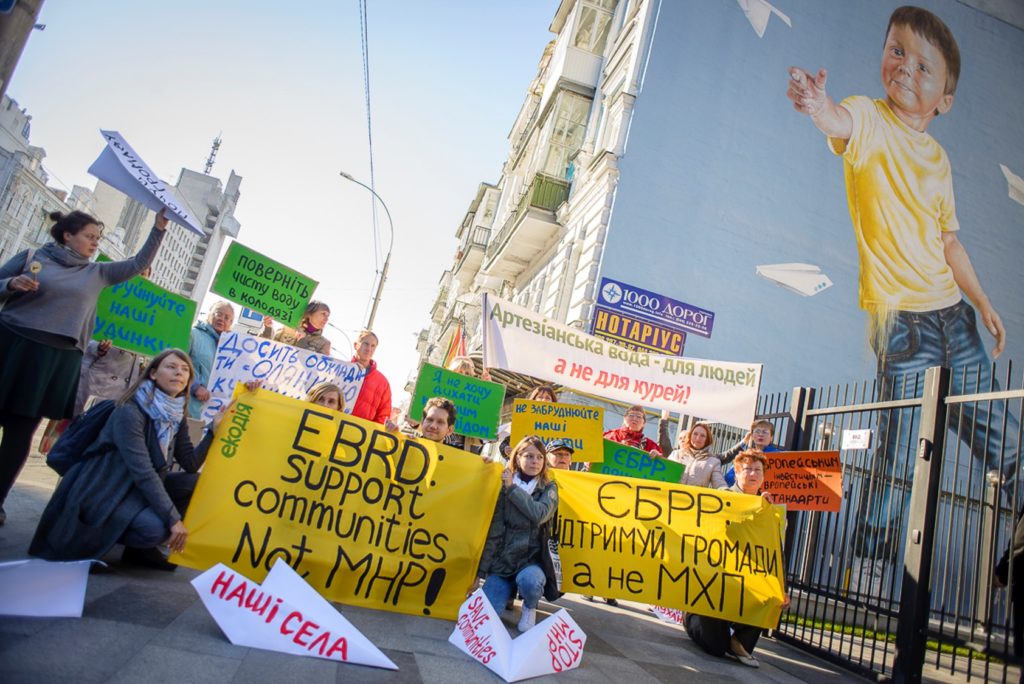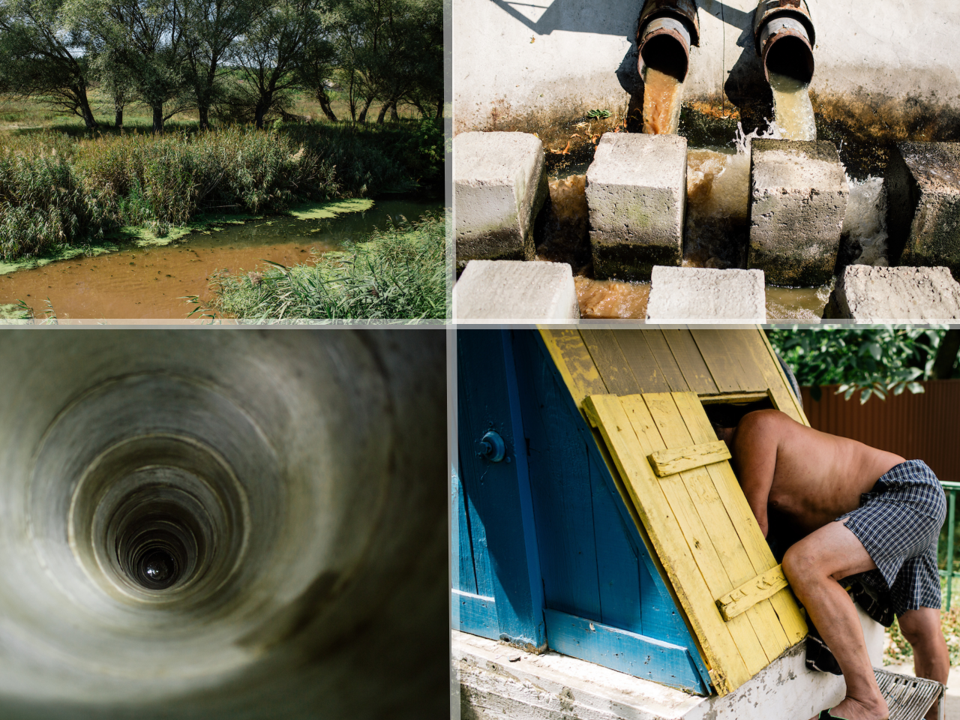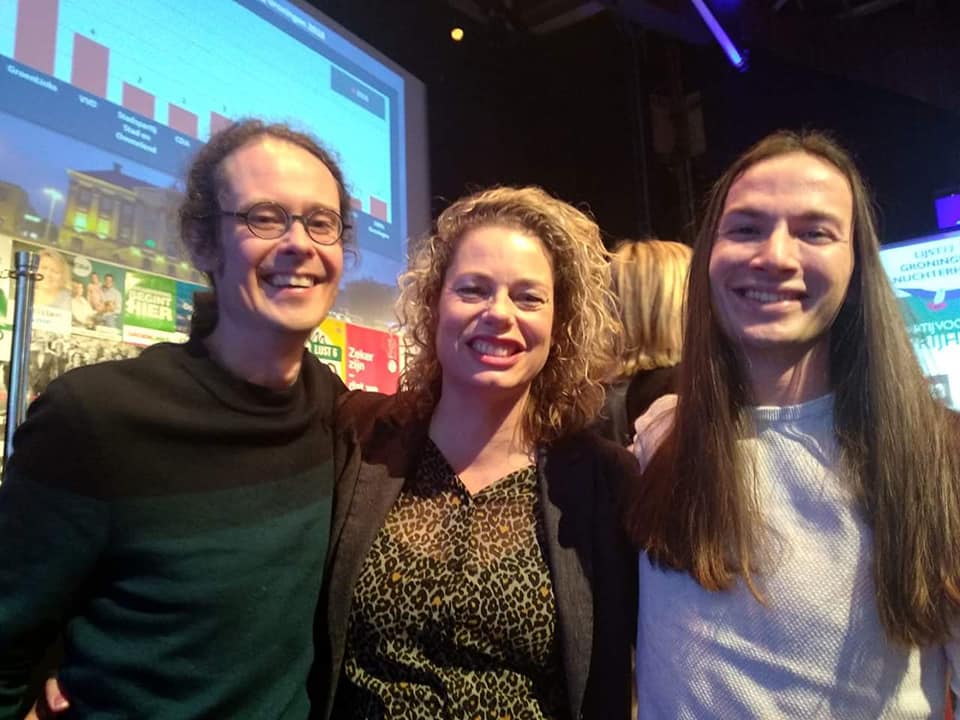Weltlog Esther Ouwehand 27. November 2018
The international movement of animal rights is in a breakthrough phase. Everywhere, more and more people are standing up against the injustice that is being done to animals and our planet. This movement is also getting increasingly more media attention. I recently spoke with a journalist of the Financial Times about the necessity of a politics based on compassion. Do you remember that in my previous worldlog I expressed my admiration for the new animal-friendly politicians and local animal protectors in Moldavia, the poorest country of Europe? Apparently, those super heroes are getting increasingly more attention from the Moldavian national media, and they are given the chance to educate people about the horrors of factory farming and to tell them about how to do things differently. It fills me with hope that more and more people, all over the world, are standing up in public for animals and are spreading awareness as a result. Even in the poorest countries. Because those people already know: compassion doesn’t cost anything.

Ukrainians object to factory farming
Also people in Ukraine are objecting to destructive factory farming. Increasingly more citizens suffer health complaints and see their environment being destroyed by new giga stables where thousands of animals are kept under horrific circumstances. During our international conference this summer in The Hague, conservationists and environmentalists of the Ukrainian organisation Ecoaction told us everything about the horrendous effects of growing factory farming in their country. At the same time, they told us a reassuring story about how they, together with local people, do everything possible to stop this destructive industry. The Guardian wrote an interesting article about it.

Living environment polluted by factory farming in Ukraine
But, unfortunately, these Ukrainian citizens and environmentalists also have to fight against international financial institutions and against the development and trade policy of the European Union (EU). Currently, a large part of development funds and funds of Western companies go to mega stables in Ukraine. The Party for the Animals has already brought up the Dutch role in these incorrect investments in the Lower House. A couple of years ago, we already warned that the controversial association treaty between the EU and Ukraine would particularly entail a great deal of trouble: not just for animals, nature and the environment, but also for many people in Ukraine. The Dutch people voted against the treaty, but the Dutch government again buried its head in the sand and opened up its doors to factory farms, which do not even meet the already weak European standards. Who turn out to be the beneficiaries in Ukraine? Mainly a handful of very rich Ukrainians and intensive factory farms, while the population has to bear the societal costs. Unacceptable.
So many people in Great Britain have now stopped consuming meat and dairy products that they do not have enough chef cooks to meet the new demand for vegetable dishes. We have filed several motions in the Lower House to include more veg(an) food in Dutch chef cook trainings, so that trainings will better meet the market demand.
We also achieved a breakthrough this month: thanks to our pleadings for more vegetable foods at our government institutions, the Dutch Ministry of Education, Culture and Science has opted for vegetarian food by default. In future, the ministry will by default only serve vegetarian or vegan food. Meat will only be served if people specifically ask for it. On our way to a sustainable, animal-friendly food culture.
Even the best-known sausage maker of the Netherlands is now convinced that the (near) future will be vegetal. This traditional meat company introduced four new products and did so perfectly: the products are 100% vegetable and also palm oil free. Perfect for animals, the environment and for all of us in the end.

Party for the Animals team in Groningen celebrates its win in the municipal elections
And finally, some more fantastic election news: last week, the Party for the Animals tripled its seats in the Dutch municipality of Groningen! It is incredibly important that we make our powerful voice heard for animals and our planet, both internationally and locally. Our municipal council party group of Alkmaar, for example, recently set a good example: this month, they decided that in future all vet costs for stray animals will be paid by the municipality. We also continue to fight internationally because animal rights, nature and the environment know no boundaries.
On 2 December next, our Spanish sister party PACMA will participate in the regional elections in Andalusia. 6.5 million inhabitants can then vote for a more beautiful future for our planet. Good luck, PACMA team!
Greetings!
Esther Ouwehand
Parliamentary leader of the Dutch Party for the Animals in the Lower House
Die internationale Tierrechtsbewegung ist in eine Durchbruchsphase eingetreten. Überall erheben sich immer mehr Menschen gegen die Ungerechtigkeit gegenüber den Tieren und unserer Erde. Diese Bewegung erfährt auch immer mehr mediale Aufmerksamkeit. Ich habe kürzlich mit einem Journalisten der Financial Times über die Notwendigkeit, einer, auf Mitleid basierenden Politik gesprochen. Erinnern Sie sich noch daran, dass ich in meinem vorherigen Weltlog meine Bewunderung über tierfreundliche Politiker und örtliche Tierschützer in Moldawien, dem ärmsten Land Europas, zum Ausdruck gebracht habe? Diese Superhelden scheinen nun mehr und mehr Aufmerksamkeit von den moldauischen nationalen Medien zu erhalten, in denen sie die Möglichkeit haben, die Menschen über die Schrecken in der Viehwirtschaft aufzuklären und ihnen zu sagen, wie etwas anders gemacht werden kann. Es gibt mir Hoffnung, dass jede Woche die Anzahl der Menschen auf der ganzen Welt wächst, die für die Tiere auf der Straße gehen und so das Bewusstsein verbreiten. Sogar in den ärmsten Ländern. Denn diese Leute wissen: Mitleid kostet keinen Cent.

Ukrainer gegen die Viehzucht
Auch in der Ukraine gibt es Widerstand gegen die destruktive Viehwirtschaft. Immer mehr Bürger bekommen Gesundheitsprobleme und sehen, dass ihre Umwelt durch die immer zahlreicheren riesigen Ställe, in denen Tausende von Tieren unter schrecklichen Bedingungen gehalten werden, zerstört wird. Während unserer internationalen Konferenze in Den Haag diesen Sommer informierten uns Natur- und Umweltschützer der ukrainischen Organisation Ecoaction über die schrecklichen Folgen des Wachstums der Viehwirtschaft in ihrem Land. Gleichzeitig erzählten sie eine ermutigende Geschichte darüber, wie sie und ihre Einwohner alles tun, um diese zerstörerische Industrie abzuwehren. Der Guardian hat einen interessanten Artikel darüber geschrieben.

Umweltverschmutzung durch die Viehwirtschaft in der Ukraine
Leider müssen diese ukrainischen Bürger und Umweltschützer auch gegen internationale Finanzinstitutionen und gegen die Entwicklungs- und Handelspolitik der Europäischen Union (EU) antreten. Im Moment gibt es nämlich viel Entwicklungsgeld und Zuschüsse von westlichen Unternehmen für Megaställe in der Ukraine. Die Partei für die Tiere hat die niederländische Rolle bei diesen falschen Investitionen im Bundestag bereits diskutiert.Vor 2 Jahren warnten wir auch davor, dass das umstrittene Assoziierungsabkommen zwischen der EU und der Ukraine viel Elend bringen würde: nicht nur für Tiere, Natur und Umwelt, sondern auch für viele Menschen in der Ukraine. Die niederländische Bevölkerung stimmte gegen den Vertrag, aber die niederländische Regierung steckte erneut den Kopf in den Sand und öffnete die Türen für Viehunternehmen, die nicht einmal die bereits schwachen europäischen Standards erfüllen. Wer profitiert davon in der Ukraine? Vor allem eine Handvoll wohlhabender Ukrainer und Viehzuchtbetriebe, während die Bevölkerung die sozialen Kosten tragen muss. Inakzeptabel!
In Großbritannien essen mittlerweile so viele Menschen kein Fleisch und Milchprodukte mehr, dass es zu wenige Köche gibt, um die neue Nachfrage nach pflanzlichen Produkten zu decken. Wir haben im Bundestag eine Reihe von Anträgen für mehr vega (n) in den niederländischen Kochkursen eingereicht, so dass die Kurse mehr zu den Marktanforderungen passen.
Wir haben diesen Monat auch einen Durchbruch erzielt: Dank unseres Aufrufs für mehr pflanzliche Lebensmittel in unseren Regierungsbehörden hat sich das niederländische Ministerium für Bildung, Kultur und Wissenschaft für vegetarisch als Norm entschieden. Ab jetzt wird im Ministerium nur noch vegetarisch oder vegan serviert. Fleisch wird nur serviert, wenn die Leute ausdrücklich danach fragen. Auf zu einer nachhaltigen, tierfreundlichen Esskultur!
Selbst der berühmteste Wursthersteller der Niederlande ist inzwischen überzeugt, dass die (nahe) Zukunft pflanzlich ist. Dieser traditionsreiche Fleischkonzern kam in diesem Monat mit vier neuen Produkten und dann auch direkt erfolgreich: Die Produkte sind zu 100% pflanzlich und palmölfreij. Sehr schön für die Tiere, die Umwelt und letztendlich für uns alle.

Partei für die Tiere-Team feiert in Groningen Gewinn bei den Kommunalwahlen
Endlich fantastische Wahlnachrichten: Die Partei für die Tiere hat sich letzte Woche in der niederländischen Stadt Groningen verdreifacht! Es ist unglaublich wichtig, dass wir den Tieren und unserem Planeten sowohl international als auch lokal eine starke Stimme verleihen können. Zum Beispiel hat unsere Stadtratsfraktion von Alkmaar dies kürzlich wieder bewiesen: sie haben diesen Monat dafür gesorgt, dass die tierärztlichen Versorgungskosten von streunenden Tieren jetzt von der Gemeinde erstattet werden. International kämpfen wir weiter, weil Tierrechte, Natur und Umwelt keine Grenzen haben.
Am 2. Dezember nimmt unsere spanische Schwesterpartei PACMA an den Regionalwahlen in Andalusien teil. 6,5 Millionen Einwohner können dann für eine bessere Zukunft von unserem Planeten stimmen. Viel Glück, Team PACMA!
Herzlichen Gruß!
Ihre Esther Ouwehand
Vorsitzender der Bundestagsfraktion der Partei für die Tiere